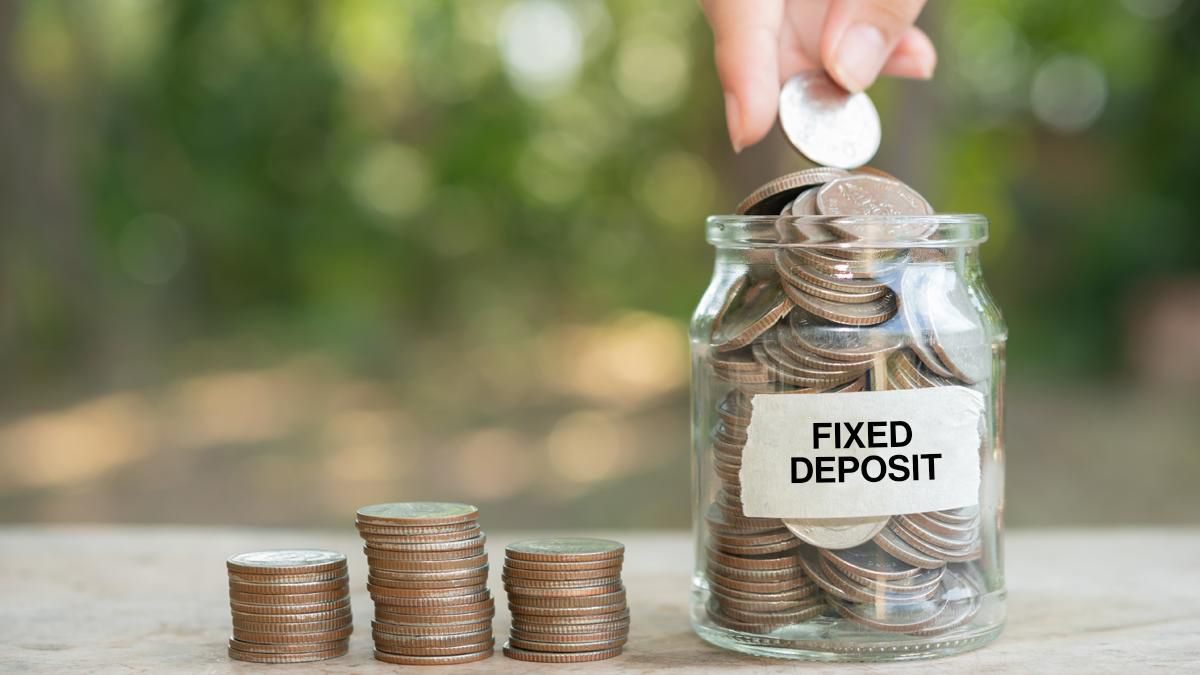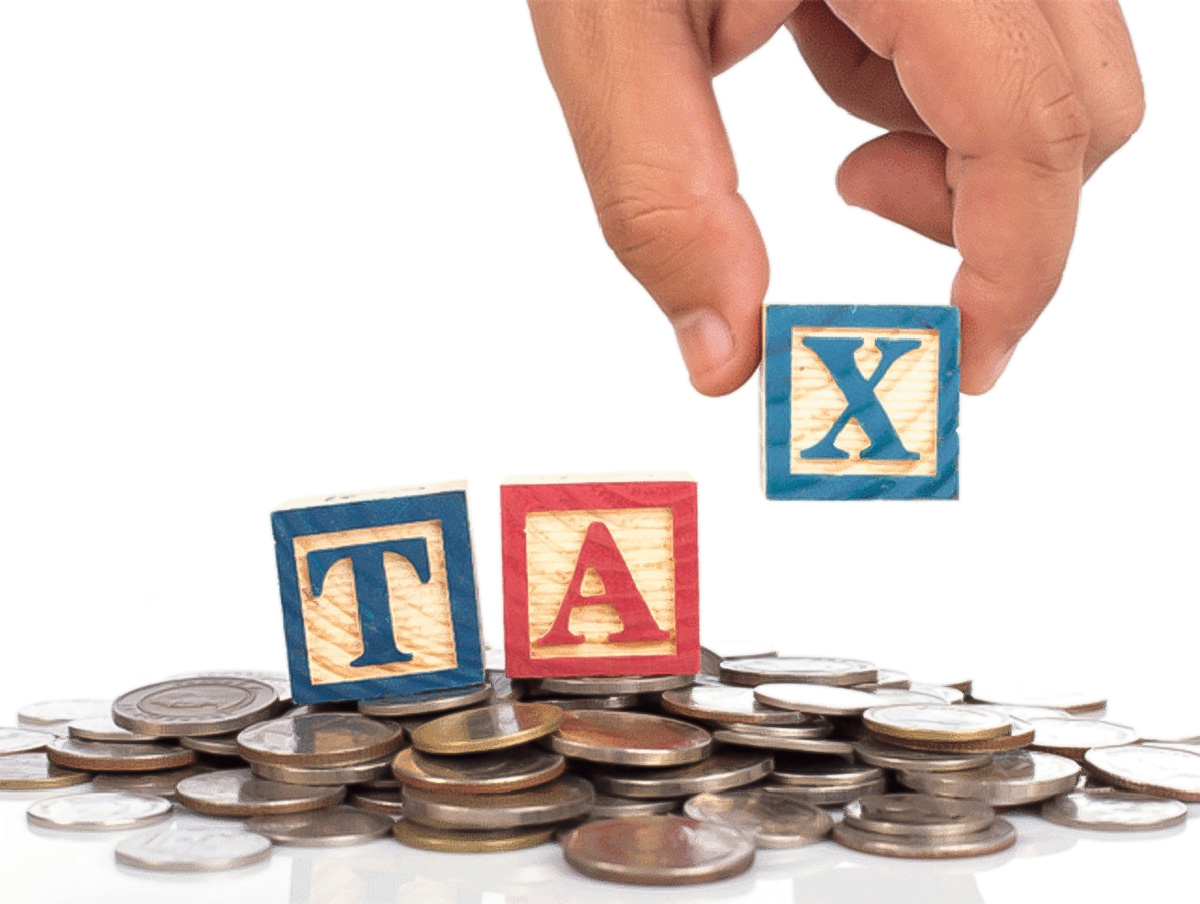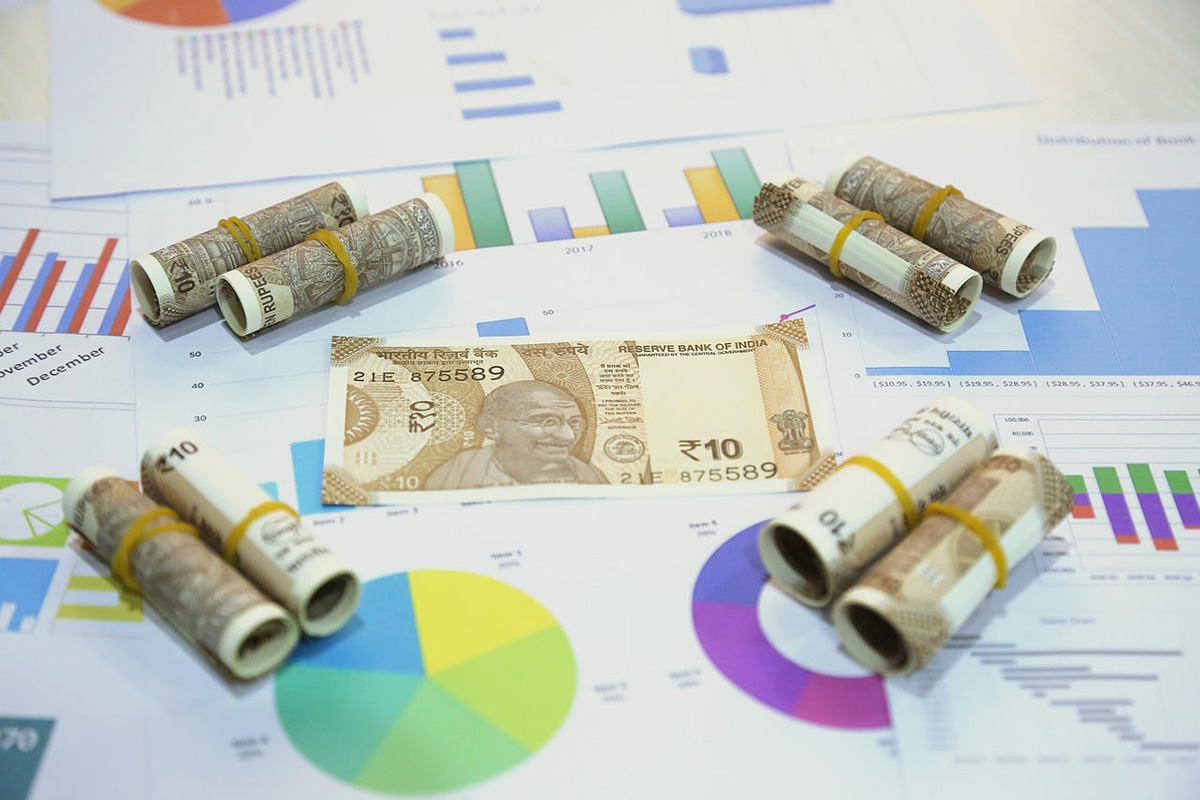

Finance
When To Pay Tax On Foriegn Fixed Deposits
Published: December 22, 2023
Learn about when to pay tax on foreign fixed deposits and how it impacts your finances. Stay informed and make smart financial decisions.
(Many of the links in this article redirect to a specific reviewed product. Your purchase of these products through affiliate links helps to generate commission for LiveWell, at no extra cost. Learn more)
Table of Contents
Introduction
Foreign fixed deposits can be an attractive investment option for individuals looking to diversify their portfolio or take advantage of higher interest rates available in other countries. However, it’s crucial to understand the tax implications of having foreign fixed deposits and when you are required to pay taxes on them. In this article, we will explore the key factors to consider when paying tax on foreign fixed deposits and how to avoid tax penalties.
Foreign fixed deposits refer to funds deposited with a bank or financial institution outside of your home country. These deposits typically offer higher interest rates than domestic fixed deposits, making them an appealing choice for investors. However, it’s important to note that the interest earned on foreign fixed deposits is usually subject to taxation.
Calculating and paying taxes on foreign fixed deposits can be complex, as it involves navigating the tax laws and regulations of multiple countries. The tax liability will depend on various factors, including the amount of interest earned, the duration of the deposit, and the tax laws in both the home country and the country where the deposit is held.
Understanding the tax implications of foreign fixed deposits is crucial to ensure compliance and avoid any penalties or legal issues. In the following sections, we will discuss the factors to consider when paying tax on foreign fixed deposits, the tax implications involved, the deadlines for tax payment, and how to avoid tax penalties.
Understanding Foreign Fixed Deposits
Foreign fixed deposits are investment vehicles that allow individuals to deposit funds in a bank or financial institution located outside their home country. These deposits typically have a fixed term and offer a predetermined interest rate. They are an attractive option for investors looking to diversify their investment portfolio or take advantage of higher interest rates available in other countries.
When considering foreign fixed deposits, it’s important to understand the key aspects of this investment option. Firstly, the interest rates offered on foreign fixed deposits may vary significantly from country to country. This means that individuals can potentially earn higher returns on their deposits compared to domestic fixed deposits.
Secondly, foreign fixed deposits are subject to the rules and regulations of the country in which they are held. This includes tax considerations, as the interest earned on these deposits is typically taxable. The tax treatment of foreign fixed deposits varies depending on the tax laws of both the home country and the country where the deposit is held. It’s important for individuals to consult with a tax professional who has expertise in international tax matters to ensure compliance.
When opening a foreign fixed deposit, individuals will typically be required to provide certain documentation, such as identification, proof of address, and a completed application form. The process may also involve additional requirements, such as minimum deposit amounts or restrictions on early withdrawals. It’s crucial to carefully review and understand the terms and conditions of the foreign fixed deposit before committing funds.
Furthermore, individuals should be aware of the risks associated with foreign fixed deposits. These include exchange rate fluctuations, political instability, and potential difficulties in repatriating funds. It’s essential to conduct thorough research on the financial institution and country where the deposit will be held to ensure it meets the necessary regulatory standards and offers a secure investment environment.
In summary, foreign fixed deposits are investment options that offer individuals the opportunity to earn potentially higher returns by depositing funds in a bank or financial institution outside their home country. However, it’s crucial to understand the tax implications, documentation requirements, and associated risks before investing in foreign fixed deposits. By doing so, individuals can make informed decisions and maximize the potential benefits of this investment option.
Factors to Consider When Paying Tax on Foreign Fixed Deposits
When it comes to paying taxes on foreign fixed deposits, there are several key factors to consider. Understanding these factors is crucial to ensure compliance with tax laws and avoid any potential penalties. Let’s explore the factors you need to keep in mind when paying tax on your foreign fixed deposits.
- Tax residency: The first factor to consider is your tax residency status. Different countries have different rules regarding tax residency, and it’s important to determine which country considers you a tax resident. In most cases, you will be subject to tax on your worldwide income in your country of tax residency.
- Tax treaties and agreements: Many countries have tax treaties or agreements in place with other countries to prevent double taxation. These treaties determine the tax treatment of certain types of income, including interest income from foreign fixed deposits. Understanding the provisions of these treaties is essential for determining your tax obligations.
- Foreign tax credit: If your home country taxes worldwide income and you also pay taxes on the interest earned from your foreign fixed deposits in the country where the deposit is held, you may be eligible for a foreign tax credit. This credit allows you to offset the taxes paid to the foreign country against your tax liability in your home country, reducing the overall tax burden.
- Interest income thresholds: Different countries have different thresholds for taxation on interest income. Some countries have a tax-free threshold, allowing you to earn a certain amount of interest income without being subject to tax. Understanding these thresholds will help you determine if your foreign fixed deposit interest is taxable or not.
- Reporting requirements: It’s important to understand your reporting obligations when it comes to foreign fixed deposits. Some countries require individuals to report their foreign financial assets, including foreign fixed deposits, on their annual tax returns or through specific reporting forms. Failing to comply with these reporting requirements can result in penalties.
These are just a few of the factors to consider when paying tax on your foreign fixed deposits. As tax laws and regulations can be complex and subject to change, it’s highly recommended to consult with a tax professional who specializes in international tax matters. They can provide personalized advice based on your specific situation and ensure that you meet all your tax obligations.
Tax Implications of Foreign Fixed Deposits
Investing in foreign fixed deposits can have significant tax implications. Understanding these implications is crucial to ensure compliance with tax laws and to accurately calculate your tax liability. Let’s explore the key tax implications associated with foreign fixed deposits.
1. Taxation of interest income: The interest earned on foreign fixed deposits is generally subject to taxation. The tax treatment will vary depending on the tax laws of your home country and the country where the deposit is held. In most cases, the interest income will be included in your taxable income and taxed at the applicable income tax rate.
2. Potential for double taxation: Investing in foreign fixed deposits may expose you to the risk of double taxation – being taxed on the same income by both your home country and the country where the deposit is held. However, many countries have tax treaties or agreements in place to prevent double taxation and provide relief through measures such as tax credits or exemptions.
3. Withholding tax: In some cases, the country where the deposit is held may impose withholding tax on the interest earned. Withholding tax is a deduction made at the source of income and is typically a percentage of the interest earned. The withholding tax rate may vary depending on the country and the provisions of any applicable tax treaties.
4. Currency exchange considerations: When calculating your tax liability, it’s important to consider the impact of currency exchange rates. The interest income earned from foreign fixed deposits may be in a different currency than your home currency. Therefore, you will need to convert the foreign currency income into your home currency using the prevailing exchange rate at the time of calculation.
5. Reporting requirements: Many countries have reporting requirements for foreign financial assets, including foreign fixed deposits. You may be required to disclose details of your foreign fixed deposits, such as the account number, the amount deposited, and the interest earned, on your tax return or through specific reporting forms. Failing to comply with these reporting requirements can result in penalties or even legal consequences.
It’s important to note that tax laws and regulations can be complex and subject to change. Therefore, consulting with a tax professional who specializes in international tax matters is highly recommended. They can help you navigate the tax implications of your foreign fixed deposits, ensure compliance with the relevant tax laws, and help you optimize your tax strategies.
Tax Payment Deadlines for Foreign Fixed Deposits
When it comes to paying taxes on your foreign fixed deposits, it’s crucial to understand the tax payment deadlines imposed by the tax authorities. Failure to meet these deadlines can result in penalties and interest charges. Let’s take a closer look at the tax payment deadlines for foreign fixed deposits.
1. Home country tax deadlines: The tax payment deadlines for foreign fixed deposits will depend on the tax laws and regulations of your home country. In most cases, individuals are required to file their tax returns and pay any tax owed by a certain date each year. This deadline is typically set by the tax authorities and may vary depending on your country of residence. It’s important to review the tax regulations specific to your country and ensure compliance with the established deadlines.
2. Country of deposit tax deadlines: In addition to the tax deadlines in your home country, you may also have tax obligations in the country where the foreign fixed deposit is held. This could include reporting requirements and tax payment deadlines imposed by the tax authorities in that country. It’s essential to be aware of these deadlines to meet your tax obligations and avoid any penalties.
3. Currency conversion considerations: When paying taxes on your foreign fixed deposits, you will need to consider the currency conversion from the currency of the deposit to the currency of your tax payment. This exchange rate will determine the amount of tax owed in your home currency. It’s important to use the official exchange rate provided by the tax authorities or a reliable financial institution when making these calculations.
4. Automatic exchange of information: Many countries have implemented automatic exchange of information agreements to combat tax evasion and improve tax transparency. Under these agreements, financial institutions are required to report certain information about their clients’ foreign financial accounts, including foreign fixed deposits, to the tax authorities. It’s crucial to ensure that the information you provide on your tax returns matches the information reported by the financial institution to avoid any discrepancies and potential audits.
5. Penalties and interest charges: Failing to meet the tax payment deadlines for your foreign fixed deposits can result in penalties and interest charges imposed by the tax authorities. These penalties can be substantial and can accrue over time. It’s important to be proactive and meet your tax payment deadlines to avoid these additional costs.
Remember, tax laws and regulations vary from country to country, and they can change over time. It’s essential to consult with a tax professional or seek guidance from the tax authorities in your home country to ensure you have the most up-to-date information and comply with the tax payment deadlines for your foreign fixed deposits.
Avoiding Tax Penalties on Foreign Fixed Deposits
When it comes to managing your tax obligations on foreign fixed deposits, it’s important to take proactive measures to avoid tax penalties. Failure to comply with tax regulations can result in monetary fines, interest charges, and even legal consequences. Here are some key strategies to help you avoid tax penalties on your foreign fixed deposits.
- Understand tax laws: The first step in avoiding tax penalties is to have a thorough understanding of the tax laws and regulations in your home country and the country where the foreign fixed deposit is held. Stay informed about any changes or updates to tax laws and seek professional advice if needed.
- Report all income: Ensure that you accurately report all interest income earned from your foreign fixed deposits on your tax return. Failure to report this income can raise red flags and result in penalties. Be diligent and provide complete and accurate information to the tax authorities.
- Comply with reporting requirements: Be aware of any reporting requirements related to your foreign fixed deposits. Some countries may require you to disclose details of your foreign financial assets, including foreign fixed deposits, separately on your tax return or through specific reporting forms. Failure to comply with these requirements can lead to penalties.
- Pay taxes on time: To avoid penalties, make sure you pay the taxes owed on your foreign fixed deposits by the designated deadlines. Set reminders and keep track of the due dates to avoid late payments. Late payments can attract interest charges and penalties, which can significantly increase your tax liability.
- Consult a tax professional: Given the complexity of international tax matters, it’s advisable to consult with a tax professional who specializes in cross-border taxation. They can guide you through the process, help you understand your tax obligations, and ensure compliance with the applicable tax laws.
- Utilize tax treaties and agreements: Check whether your home country has a tax treaty or agreement with the country where your foreign fixed deposit is held. These agreements can help prevent double taxation and provide relief through measures such as tax credits or exemptions. Familiarize yourself with the specific provisions and take advantage of them to optimize your tax position.
By understanding the tax laws, reporting all income, complying with reporting requirements, paying taxes on time, consulting with professionals, and utilizing tax treaties, you can effectively avoid tax penalties on your foreign fixed deposits. It’s essential to be proactive and maintain accurate records to ensure a smooth tax filing process and minimize the risk of penalties.
Conclusion
Investing in foreign fixed deposits can be a rewarding way to diversify your portfolio and potentially earn higher returns. However, it’s essential to understand the tax implications and follow the necessary steps to comply with tax obligations. By doing so, you can avoid tax penalties and ensure a smooth and legal investment experience.
When it comes to paying taxes on foreign fixed deposits, several factors need to be considered. These include your tax residency status, any tax treaties or agreements in place, the potential for double taxation, withholding tax, currency exchange considerations, and reporting requirements. These factors will have an impact on your tax liability and the deadlines for tax payment.
To avoid tax penalties on your foreign fixed deposits, it’s crucial to have a solid understanding of tax laws and regulations. By reporting all your income accurately, complying with reporting requirements, paying taxes on time, and consulting with tax professionals, you can ensure compliance and minimize the risk of penalties.
Additionally, utilizing tax treaties and agreements can provide relief from double taxation and optimize your tax position. Be proactive in staying updated on any changes or updates to tax laws and seek professional advice if needed.
In conclusion, investing in foreign fixed deposits can be a lucrative opportunity for investors, but it comes with tax implications that must be carefully considered. By being proactive, diligent, and seeking professional guidance, you can navigate the complex tax landscape and ensure compliance, allowing you to maximize the benefits of your foreign fixed deposit investments.














